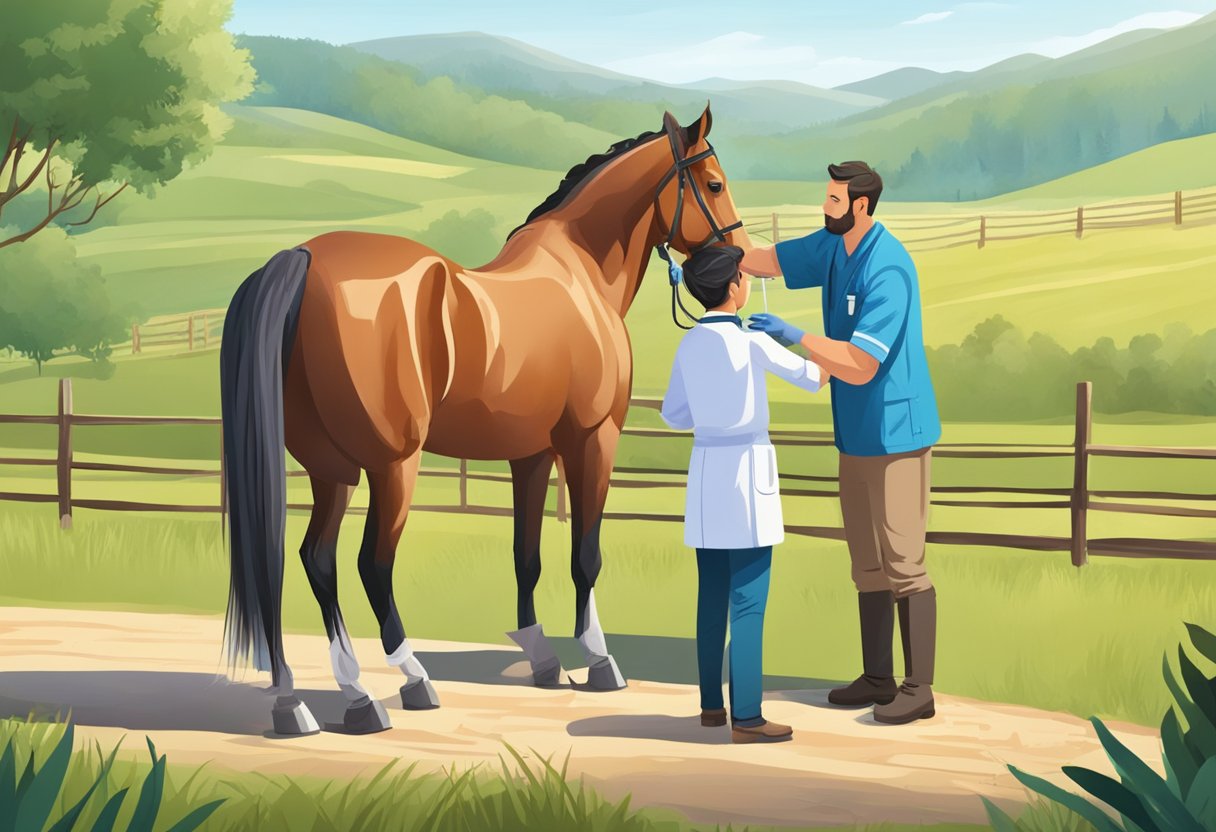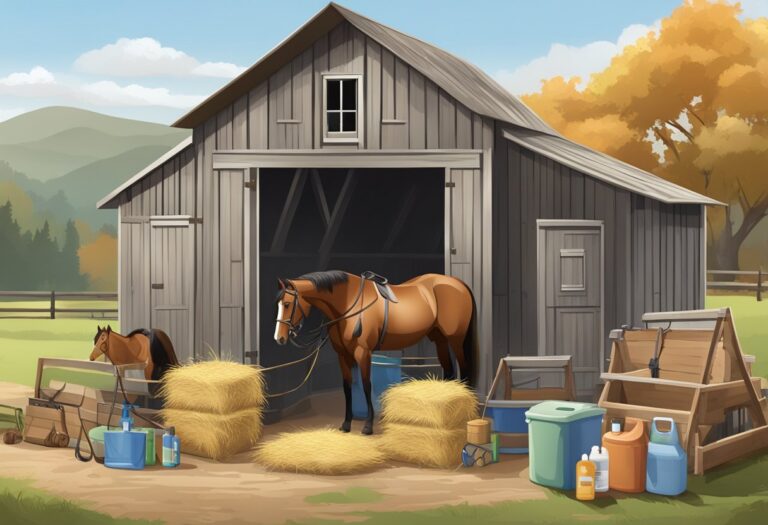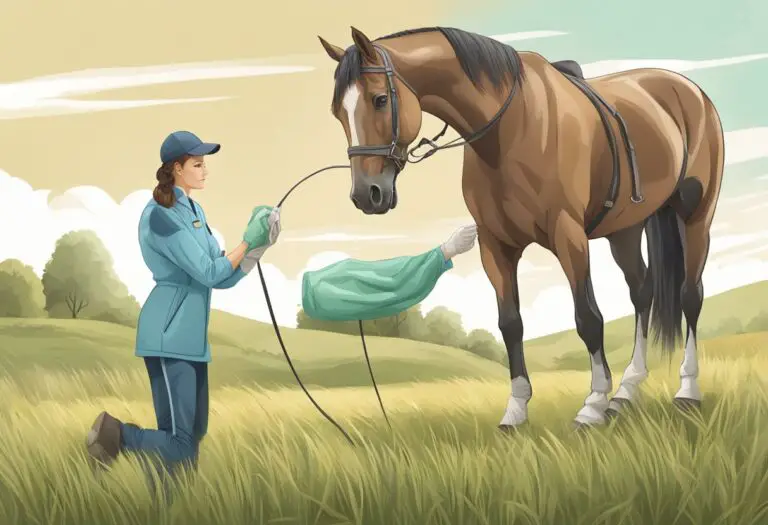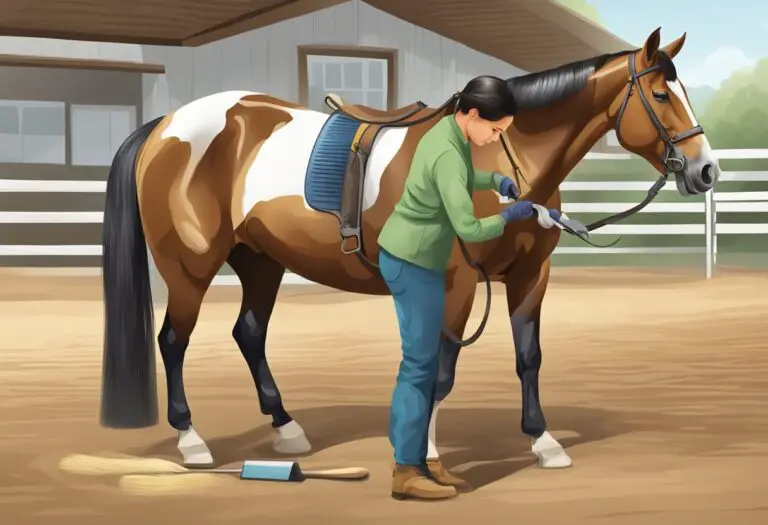When Should a Horse be Vaccinated? A Veterinary Guide
Vaccinations are an essential part of equine health care. Vaccines help protect horses from a range of infectious diseases, some of which can be fatal. However, many horse owners may be unsure about when to vaccinate their horses. In this article, we will explore the topic of when horses should be vaccinated.
The timing of vaccinations can depend on a variety of factors, including the horse’s age, lifestyle, and risk of exposure to certain diseases. Some vaccines are given annually, while others require more frequent boosters. It is important to work with a veterinarian to develop a vaccination schedule that is tailored to each individual horse’s needs. This can help ensure that the horse is protected against the most common and dangerous diseases in their area.
Overall, it is crucial for horse owners to prioritize vaccination as a key component of their horse’s health care. By staying up-to-date on vaccinations, horse owners can help protect their beloved equine companions from a range of infectious diseases, and ensure that they remain happy and healthy for years to come.
Fundamentals of Equine Vaccination

Vaccination is a critical aspect of equine care that helps protect horses from various infectious diseases. The decision to vaccinate a horse should be based on factors such as age, health status, lifestyle, and geographic location. Here are some essential things to know about equine vaccination.
Core Vaccines for Horses
Core vaccines are those that are recommended for all horses, regardless of their location or lifestyle. These vaccines protect against diseases that are highly contagious, potentially life-threatening, and have a significant impact on equine health. The following are the core vaccines for horses:
- Tetanus
- Eastern and Western Equine Encephalomyelitis (EEE/WEE)
- West Nile Virus (WNV)
- Rabies
Risk-Based Vaccines
Risk-based vaccines are recommended based on a horse’s risk of exposure to specific pathogens. These vaccines are not necessary for all horses but may be essential for those that are at risk due to factors such as travel, competition, or living in areas with high disease prevalence. The following are some examples of risk-based vaccines:
- Equine Influenza
- Equine Herpesvirus (EHV)
- Strangles
- Botulism
Vaccination Schedules and Frequency
The vaccination schedule and frequency will depend on the horse’s age, health status, and risk of exposure to diseases. Most vaccines require an initial series of two or three doses, followed by booster shots at regular intervals. It is essential to follow the manufacturer’s instructions and consult with a veterinarian to determine the appropriate vaccination schedule for each horse.
Foal Vaccination Guidelines
Foals are born with some level of immunity from their dams, but this immunity gradually wanes over time. Foals should receive their first vaccinations at 6-8 weeks of age, followed by booster shots every 4-6 weeks until they are four to six months old. After that, they should follow the standard vaccination schedule for adult horses.
In conclusion, vaccination is a crucial aspect of equine care that helps protect horses from infectious diseases. Horse owners should work closely with their veterinarians to determine the appropriate vaccination schedule and ensure that their horses receive the necessary vaccines to maintain good health.
Determining Vaccination Needs

When it comes to determining a horse’s vaccination needs, several factors must be considered. This includes the horse’s health status, environmental risks, and regional disease risks. By assessing these factors, horse owners and veterinarians can determine the appropriate vaccination schedule for each horse.
Assessing Horse’s Health Status
Before vaccinating a horse, it is important to assess the horse’s health status. Horses that are sick, stressed, or have a compromised immune system may not respond well to vaccinations. Therefore, it is recommended to delay vaccination until the horse is healthy.
It is also important to consider the horse’s age and vaccination history. Foals and young horses require a series of vaccinations to build immunity, while older horses may only need booster shots. Horse owners should keep accurate vaccination records to ensure that their horses receive the appropriate vaccines at the right time.
Evaluating Environmental Risks
The environment in which a horse lives can also impact their vaccination needs. Horses that are stabled or frequently travel to shows or events may be exposed to more pathogens and require more frequent vaccinations. Additionally, horses that live in areas with high mosquito or tick populations may require vaccinations against diseases such as West Nile virus or Lyme disease.
Understanding Regional Disease Risks
The prevalence of certain diseases can vary depending on the region in which a horse lives. For example, horses in areas with high rates of Eastern or Western Equine Encephalitis may require vaccination against these diseases. Horse owners should consult with their veterinarian to determine which vaccines are necessary based on the regional disease risks in their area.
In conclusion, determining a horse’s vaccination needs requires careful consideration of their health status, environmental risks, and regional disease risks. By working with a veterinarian and keeping accurate vaccination records, horse owners can ensure that their horses receive the appropriate vaccines at the right time to maintain their health and well-being.
Vaccination Procedures

Pre-Vaccination Considerations
Before vaccinating a horse, it is important to consider several factors. The horse’s age, health status, and vaccination history should be taken into account. Horses that have never been vaccinated or have an unknown vaccination history may require a different vaccination schedule than horses with a known vaccination history. It is also important to consider the timing of vaccinations, as some vaccines may require booster shots at specific intervals.
Administering Vaccines
Vaccines can be administered by a veterinarian or a trained individual under the supervision of a veterinarian. The vaccine should be stored properly and administered according to the manufacturer’s instructions. The injection site should be cleaned with alcohol or another disinfectant before injection. It is important to use a new, sterile needle for each injection to prevent the spread of infection. After injection, the horse should be monitored for any adverse reactions.
Post-Vaccination Care
After vaccination, the horse should be monitored for any adverse reactions, such as swelling or fever. It is important to follow up with any necessary booster shots according to the vaccine schedule. The horse should also be kept in a clean and stress-free environment to help prevent the spread of disease. If any adverse reactions occur, a veterinarian should be contacted immediately.
Overall, vaccination is an important aspect of horse health and should be taken seriously. By considering pre-vaccination factors, administering vaccines properly, and monitoring the horse post-vaccination, the risk of disease can be greatly reduced.
Monitoring and Adverse Reactions

Vaccines are generally safe and effective, but like any medication, they can cause adverse reactions in some horses. It is important to monitor horses after vaccination to ensure that they are not experiencing any adverse reactions.
Recognizing Vaccine Reactions
Horse owners should be aware of the common signs of vaccine reactions, which may include:
- Swelling or hives at the injection site
- Fever
- Depression or lethargy
- Loss of appetite
- Difficulty breathing
If a horse experiences any of these symptoms after vaccination, it is important to contact a veterinarian immediately. In some cases, a vaccine reaction can be serious and require prompt medical attention.
Reporting Adverse Events
Horse owners and veterinarians should report any adverse events associated with vaccination to the vaccine manufacturer and the relevant regulatory agency. This information is used to monitor the safety and efficacy of vaccines and to identify any potential issues.
Reporting adverse events is easy and can be done online or by phone. The vaccine manufacturer or regulatory agency will provide instructions on how to report adverse events.
By monitoring horses after vaccination and reporting any adverse events, horse owners and veterinarians can help ensure the safety and efficacy of vaccines and protect the health of horses.
Legal and Record-Keeping Aspects

Understanding Vaccine Laws
Horse owners are responsible for complying with state and federal laws regarding vaccinations. These laws vary depending on the state and the type of vaccine, so it is important to research and understand the specific requirements in your area. Failure to comply with these laws can result in fines and legal action.
In addition to state and federal laws, many equestrian organizations have their own vaccination requirements for horses participating in events or competitions. It is the owner’s responsibility to ensure that their horse is up-to-date on all necessary vaccinations before participating in any events.
Maintaining Vaccination Records
It is important for horse owners to keep accurate records of their horse’s vaccinations. This includes the date of administration, the type of vaccine, and the lot number. These records should be kept in a secure location and easily accessible in case of an emergency or if requested by a veterinarian or regulatory agency.
Some states require that horse owners maintain vaccination records for a specific period of time, such as three years. It is important to check with your state’s regulations to ensure compliance.
Keeping accurate vaccination records not only helps ensure compliance with legal requirements, but also assists in monitoring the health of the horse and identifying any potential issues. It is recommended that horse owners work with their veterinarian to establish a vaccination schedule and maintain accurate records.







